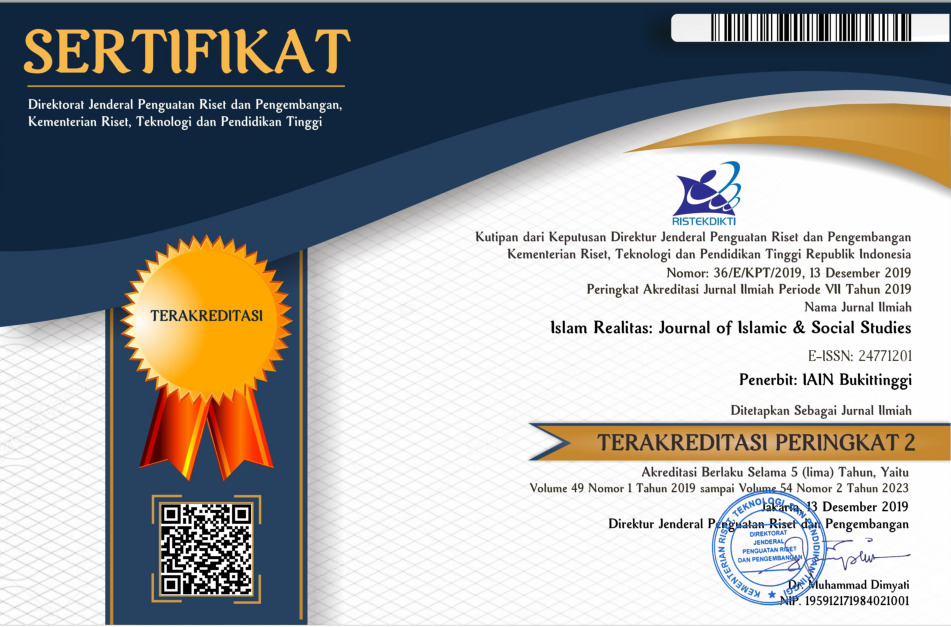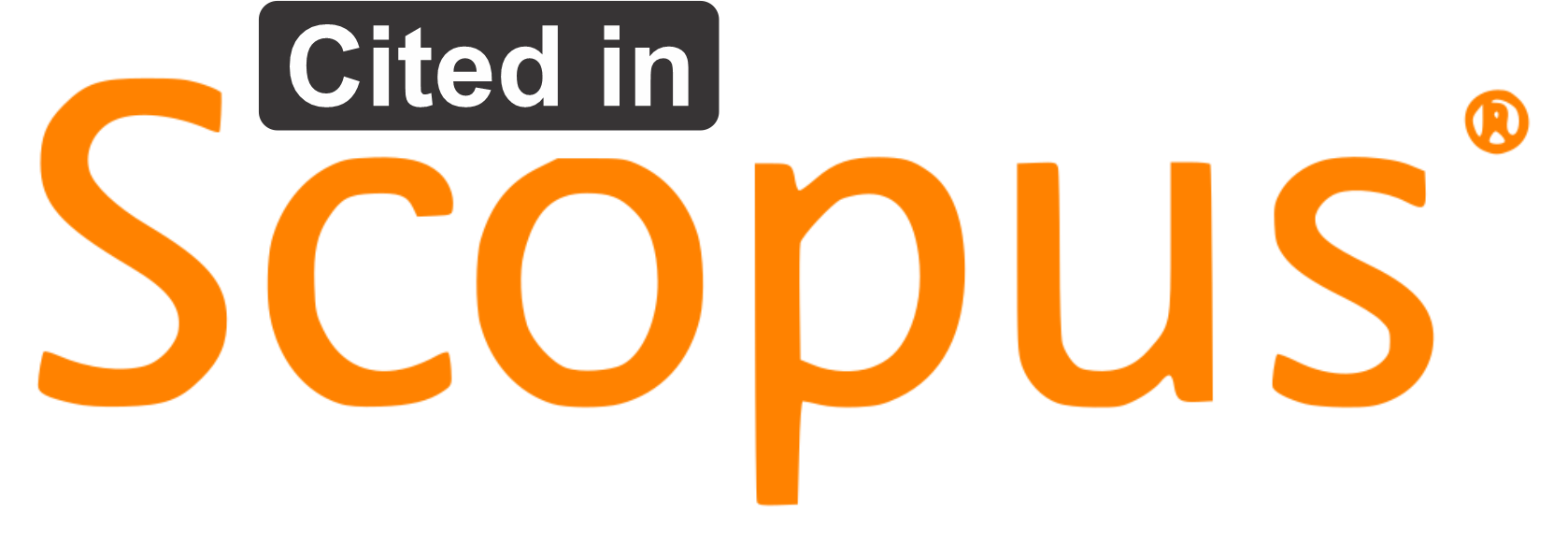POS-ISLAMISME “ILMU†EKONOMI ISLAM DI ERA URBAN DAN MULTIKULTURALISME
Downloads
Islamic economics was born from the spirit of Islamization of science. It was a response to the problems and realities of Muslims who face malaise in the middle of the feud ideologies of capitalism and socialism. However, after the Islamisation process took place, there were some fundamental problems: the hegemony of the market, popularism of Islamic economics as a result of the crisis of epistemology. This is the new face of Islamic economics stub of post-Islamism. The economic problems, particularly in Indonesia, should be viewed as a complex things, then analyze and tie the formulation of solution must alsobe done by the complex or plural approach. For this purpose, it would be required a pilot of a systematic framework of Islamic economics epistemology in the world view of Islam. At this point, indonesialize the Islamic economics is part of efforts to establish an economic framework in accordance with the spirit and rich culture of indigenous people of Indonesia. Moreover, in the context of the postmodernist paradigm of economic development, local wisdom should be involved in economic development which is an effort to actualize the sustainable economic development
Sebagai disiplin ilmu, ekonomi Islam lahir dari semangat islamisasi ilmu pengetahuan. Ia merupakan respon terhadap persoalan dan realitas umat muslim yang mengalami malaise di tengah perseteruan ideologi kapitalisme dan sosialisme. Namun, setelah proses islamisasi itu berlangsung, terdapat persoalan mendasar: yaitu hegemoni pasar, popularisme ekonomi Islam sebagai dampak dari krisis epistemologi. Inilah yang menjadi wajah baru rintisan ilmu ekonomi islam pos-islamisme. Berangkat dari permasalahan ekonomi, khususnya di Indonesia, semestinya dilihat secara kompleks, maka mengurai dan merajut formulasi solusinya harus pula dengan pendekatan yang kompleks atau plural. Untuk tujuan ini, maka diperlukan sebuah rintisan kerangka epistemologi ekonomi Islam yang tersistem dalam world view Islam Pada titik ini, mengindonesiakan ekonomi Islam merupakan bagian dari upaya membentuk kerangka ekonomi yang sesuai dengan nafas budaya dan kearifan lokal masyarakat Indonesia yang sangat kaya. Terlebih, dalam konteks paradigma pembangunan ekonomi pascamodernis, semestinya melibatkan kearifan lokal dalam pembangunan ekonomi yang merupakan upaya mewujudkan pembangunan ekonomi yang berkelanjutan (sustainable development)Buku Teks
Abdullah, Taufik, Agama sebagai Kekuatan Sosial: suatu Ekskursi di Wilayah Metodologi Penelitian, dalam Taufik Abdullah dan M. Rusli Karim, Ed. Metodologi Penelitian Agama; Suatu Pengantar (Yogyakarta : Tiara Wacana, 2004)
Addiarrahman, Membedah Paradigma Ekonomi Islam (Yogyakarta : Ombak, 2003)
Al-Faruqi, Ismail Raji, Islamization of Knowledge: General Prinsiple and Work Plan, (Virginia : IIIT, 1989)
Aryo, Bagus, Tenggelam dalam Arus Neoliberlisme, (Yogyakarta : Kepik, 2012)
Erhard Eppler, Melindungi Negara dari Ancaman Neoliberal, terj. (Jakarta : Friedrich- 29
Dawam Rahardjo, Pembangunan Pascamodernis; Esai-esai Ekonomi Politik (Jakarta: Insist Press, 2013), h. 20.
Haneef, Mohammed Aslam, dan Hafas Furqani, “Usul al-Iqtisad: The Missing Dimensions in Contemporary Islamic Economics and Finance.†dalam Nurazura Sanusi (ed.), Readings in Islamic Economics and Finance. (Sintok: UUM Publications, 2007)
Harvey, David, A Brief History of Neoliberalism, (New
York : Oxford University Press, 2005) Heryanto, Ariel, Identitas dan Kenikmatan Politik Budaya Layar Indonesia, (Jakarta : KPG, 2015)
Kartanegara, Mulyadhi, Integrasi Ilmu: Sebuah Rekonstruksi Holistik (Jakarta : Mizan, 2003)
Latif, Yudi, Dialektika Islam: Tafsir Sosiologis atas Sekularisasi dan Islamisasi di Indonesia, (Yogyakarta : Jalasutra, 2007)
Piliang, Yasraf Amir, Bayang-bayang Tuhan, Agama dan Imajinasi, (Jakarta : Mizan Publika, 2011)
Rahardjo, M. Dawam, Pembangunan Pascamodernis; Esai-esai Ekonomi Politik (Jakarta : Insist Press, 2013)
Rais, Mohammad Amien, Agenda-Mendesak Bangsa Selamatkan Indonesia, (Yogyakarta : PPSK, 2008)
Rizky, Awalil, & Nasyith Majidi, Neoliberalisme Mencengkram Indonesia (Jakarta : E. Publishing, 2008)
Sardar, Ziauddin, Kembali ke Masa Depan Syari’at sebagai Metodologi Pemecahan Masalah, terj. (Jakarta: Serambi, 2005)
Sholeh, A. Khudori, Wacana Baru Filsafat Islam
(Yogyakarta: Pustaka Pelajar, 2012)
Jurnal, Makalah dan Sumber Internet
Addiarrahman, ‘Studi Pengembangan Ekonomi Islam Berbasis Kearifan Lokal di Indonesia; Paradigma dan Model untuk Pengembangan Ekonomi Umat’, Dipresentasikan dalam Annual Conference on Islamic Studies Ke-XI, Bangka Belitung : 2011.
Kuran, Timur, ‘Islamic Economics and Islamic Subeconomy’, Journal of Economic Perspectives, Vol. 9., No. 4, Fall 1995
----------, “The Economic System in Contemporary Islamic Thought; Interpretation and
Authors who publish with this journal agree to the following terms:
- Authors retain copyright and grant the journal right of first publication with the work simultaneously licensed under a Creative Commons Attribution License that allows others to share the work with an acknowledgment of the work's authorship and initial publication in this journal.
- Authors are able to enter into separate, additional contractual arrangements for the non-exclusive distribution of the journal's published version of the work (e.g., post it to an institutional repository or publish it in a book), with an acknowledgment of its initial publication in this journal.
- Authors are permitted and encouraged to post their work online (e.g., in institutional repositories or on their website) prior to and during the submission process, as it can lead to productive exchanges, as well as earlier and greater citation of published work (See The Effect of Open Access).









